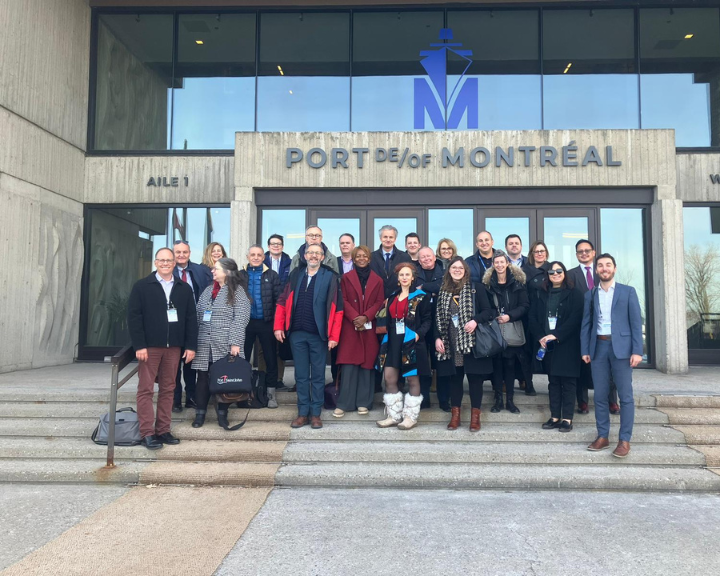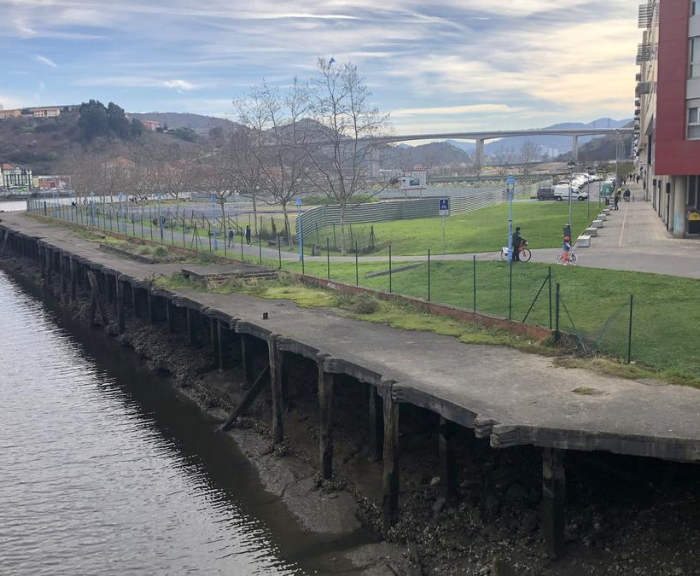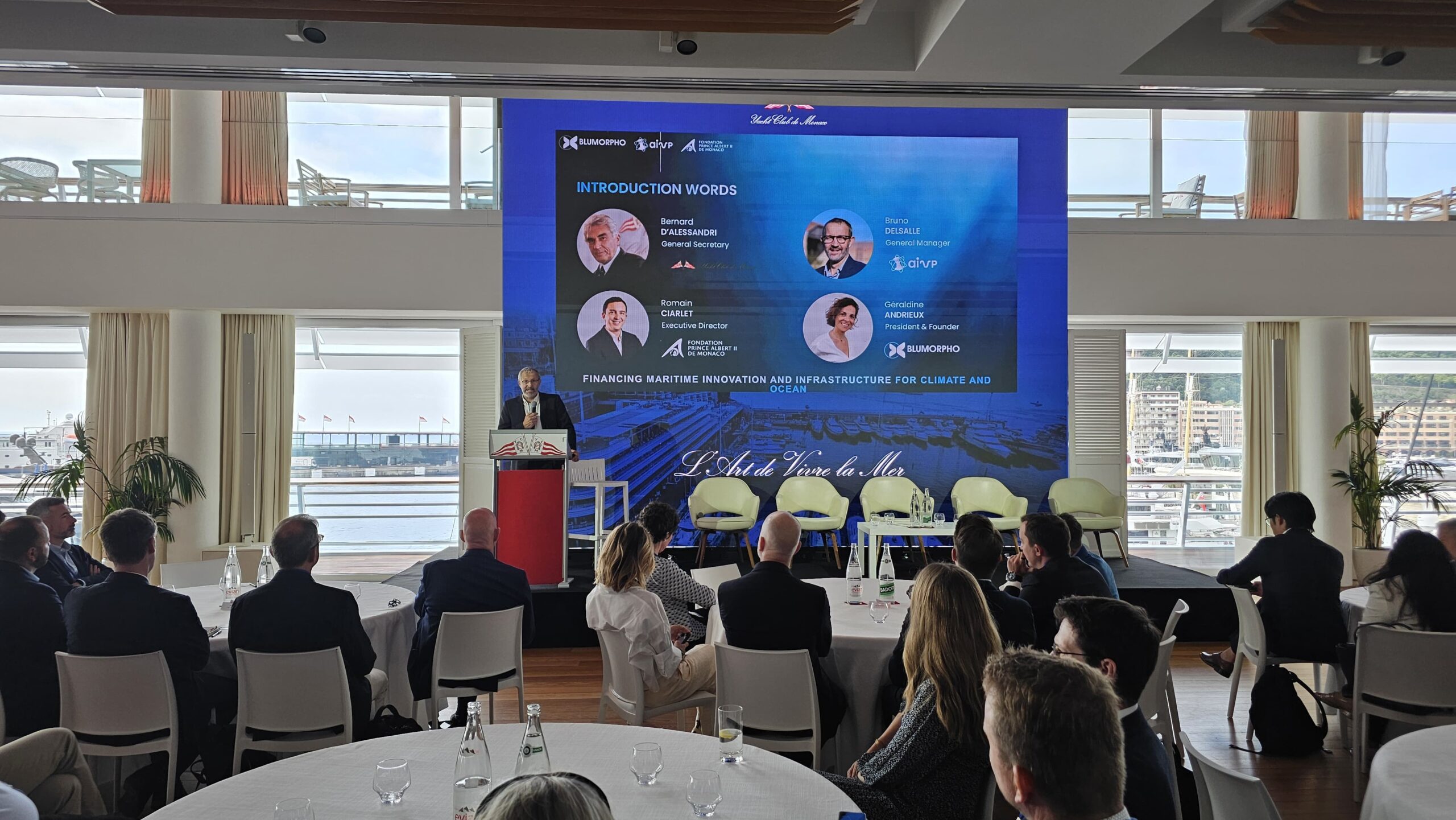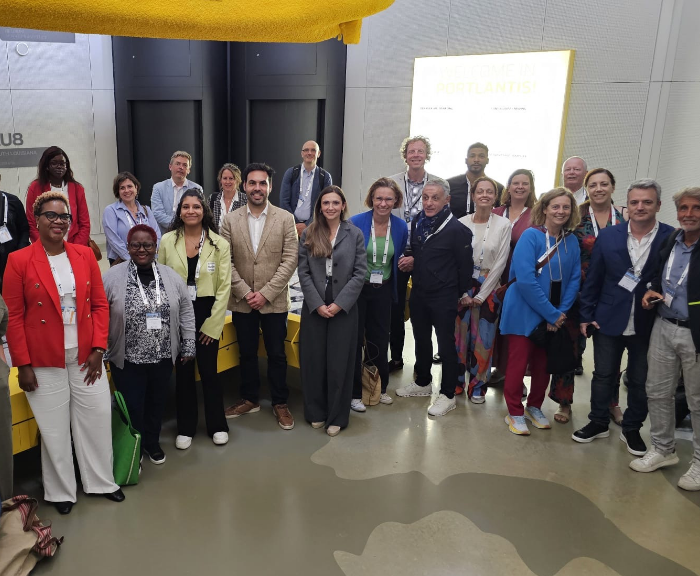The port authority of Montreal, an active member of AIVP, hosted the 2024 seminar of the Port Center working group on 14 and 15 March. Thirty-five participants from around a dozen countries attended the event, which is open to all AIVP members keen to discuss community engagement. The working group has been meeting regularly for the last ten years, to talk about the practical ways in which Port Centers are created and run, and policies aimed at integrating ports into civil society. Port Centers, sometimes referred to as “port interpretation centers”, are attractions that bring port professionals face-to-face with the general public. For a port city, a physical location such as this acts as a very useful “face” of the port for residents and visitors and helps members of the public to familiarize themselves with the port and its workings. However, the discussions during the seminar showed that the Port Center concept can equally be applied to other types of actions, using multiple locations, virtual platforms, or a genuine program of events or celebrations.
To begin the seminar, we had the pleasure of talking to the Port and City of Montreal about the challenges facing the port-city interface in Quebec’s largest city, where the port terminals sit right next to the urban districts all along the 26 kilometres of river bank. We then discussed two particular working themes: 1) educational renewal, and 2) governance.
It quickly became clear that not only do Port Centers require confident governance, but they also need to be adapted to reflect local realities, and these are important factors. Participants at the seminar also highlighted the need to build programs of action in collaboration with users (i.e. citizens!), and give civil society direct input into the port’s cultural and social policies. Feedback from the North American representatives from San Diego, Los Angeles, Halifax, and Saint John (in the US and English-speaking Canada) was particularly appreciated. The day concluded with a bus tour to see the port-city interface and gain a first-hand look at the activities taking place at the port itself, with the kind cooperation of Montreal’s port authority and terminal operators.
The delegates had been particularly looking forward to day two, which included a visit to the Port of Montreal Tower overlooking the Grand Quay, cruise terminals, and Port Interpretation Center. Discussions focused on the outlook for the new Port Centers currently being created in Bordeau, Guiana, Kribi, and San Diego. In addition, participants were offered a training and awareness session dedicated to museology and interactive learning, with the support of CREO and the Quebec Museum of Civilization. We would like to thank them for their cooperation. To round off the day, the participants were invited to try out the different educational modules at Montreal’s Port Interpretation Center, which uses a “fun learning” approach combined with a splendid observation tower to reach out to a wider audience.
With useful feedback, collective training and field trips, this 2024 seminar – held place physically, rather than online – was a good opportunity to consolidate our working group’s momentum. The Port Center Missions Charter, which has already enabled around fifteen AIVP members to engage with their port and city communities on this initiative, is set to be updated based on the discussions in Montreal and ongoing work by AIVP’s staff. There are already plans to continue the discussions with a series of online meetings, before we convene again in March 2025, this time in Europe.





